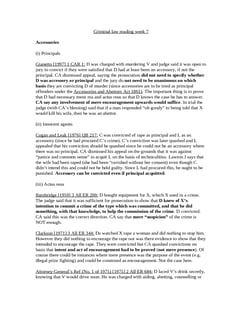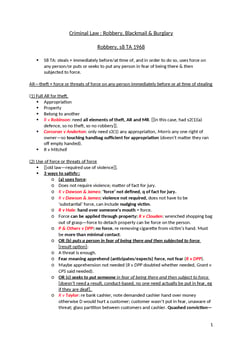Judgement for the case R v R
Table Of Contents
KEY POINTS
In the offense of rape, a contentious issue revolves around the concept of marital exemption.
The issue pertains to the law of rape is subject to such an exemption. The focal point of this issue is whether a husband can be convicted of rape if he engages in sexual intercourse with his wife without her consent.
Central to the argument is the interpretation of the term 'unlawful' within the definition of rape as 'unlawful sexual intercourse.'
The ambiguity arises as 'unlawful' inherently signifies conduct outside the confines of marriage. This legal quandary prompts examining the Sexual Offences (Amendment) Act 1976, particularly Section 1(1), to elucidate the legislative stance.
FACTS
R (‘Husband’) and Victim (‘Wife’) were married in 1984 but separated in October 1989 when the Wife left the marital home with their child and sought refuge at her parents' home.
After their separation, the Husband communicated his intention to pursue a divorce. In the following month, the Husband unlawfully entered the parents' home and either compelled the Wife to engage in sexual intercourse or attempted to do so. As a result, he faced charges of rape and assault occasioning actual bodily harm.
During the trial, the judge rendered a crucial ruling regarding the potential conviction of the Husband for the rape of his Wife.
The judge determined that a Wife possessed the ability to unilaterally withdraw her implied consent to sexual intercourse through a withdrawal from cohabitation, accompanied by a clear indication that her consent to such acts had been terminated.
The charge of rape was left for the jury to consider. The Husband later pleaded guilty to attempted rape and assault occasioning actual bodily harm, leading to a three-year prison sentence.
The Husband appealed the judgment, contending that the judge's ruling was legally incorrect. Despite the appeal, the Court of Appeal upheld the decision but recognized the matter's general public importance, granting leave for an appeal to the House of Lords.
JUDGEMENT
The appeal was dismissed. The rule, which previously held that a Husband cannot be criminally liable for raping his wife if he engages in sexual intercourse without her consent, no longer constitutes part of the law of England. This transformation arises from recognizing a Husband and Wife as equal partners in marriage.
It is deemed unacceptable that marriage should entail irrevocable submission to sexual intercourse by the wife under all circumstances.
The notion that a Wife consents to intercourse in all situations, including instances where it is obtained through force, is considered incompatible with the principles of modern marriage.
Section 1(1) of the Sexual Offences (Amendment) Act 1976, defining rape as 'unlawful' intercourse with a woman without her consent, signifies that the term 'unlawful' is to be construed as surplusage and not indicative of 'outside marriage.'
This interpretation is grounded in the understanding that engaging in sexual intercourse with any woman without her consent is inherently unlawful.
COMMENTARY
The R (‘Husband’) and Victim (‘Wife’) case marks a significant legal development in marital relations and sexual offenses. It involves charges of rape and assault as the Husband unlawfully entered the parents' home after separating from his Wife.
A trial ruling established a nuanced understanding of consent within marriage, emphasizing a Wife's unilateral ability to withdraw implied consent. This challenges the traditional notion of exempting Husbands from criminal liability for marital rape, aligning with an evolving perspective of marriage as an equal partnership.
The subsequent guilty plea and appeal show the broader societal impact, with the Court of Appeal recognizing the case's public importance.
The dismissal of the appeal signifies a fundamental change, dismantling the rule shielding Husbands from criminal liability in marital rape cases. This legal evolution emphasizes mutual consent and equal agency within marriage, reflecting broader societal shifts towards justice and individual autonomy in intimate relationships.
ORIGINAL ANALYSIS
A wife, Victim, left her husband and went to live with her parents. Defendant, her husband, forced his way into their home and attempted to rape Victim.
HL ruled that the law no longer recognised the immunity of a husband from raping his wife and therefore he was guilty.
-
There are a series of cases moving away from the idea in Clarence that a man cannot be guilty of raping his wife to the position that (once she has “ended the marriage contract” and has removed her consent) then it is possible for a man to rape his wife.
Does this mean that unless the wife determines to end the marriage then she can still be raped?
RELATED CASES
For Further Study on R v R

Criminal Law notes fully updated for recent exams at Oxford and Cambrid...
Need instant answers? Our AI exam tutor is here to help.
Ask questions 🙋 Get answers 📔 It's simple 👁️👄👁️
Our AI is educated by the highest scoring students across all subjects and schools. Join hundreds of your peers today.
Get StartedRelated Product Samples
These product samples contain the same concepts we cover in this case.
| Criminal Law | Sexual Offences Notes (7 pages) |
| GDL Criminal Law | Sexual Offences Notes (9 pages) |
| Criminal Law | Sexual Offences Notes (9 pages) |

 Since 2010, Oxbridge Notes has been a trusted education marketplace, supplying high-quality materials from top achievers at universities like Oxford, Cambridge, LSE, Harvard, and Yale.
Since 2010, Oxbridge Notes has been a trusted education marketplace, supplying high-quality materials from top achievers at universities like Oxford, Cambridge, LSE, Harvard, and Yale.